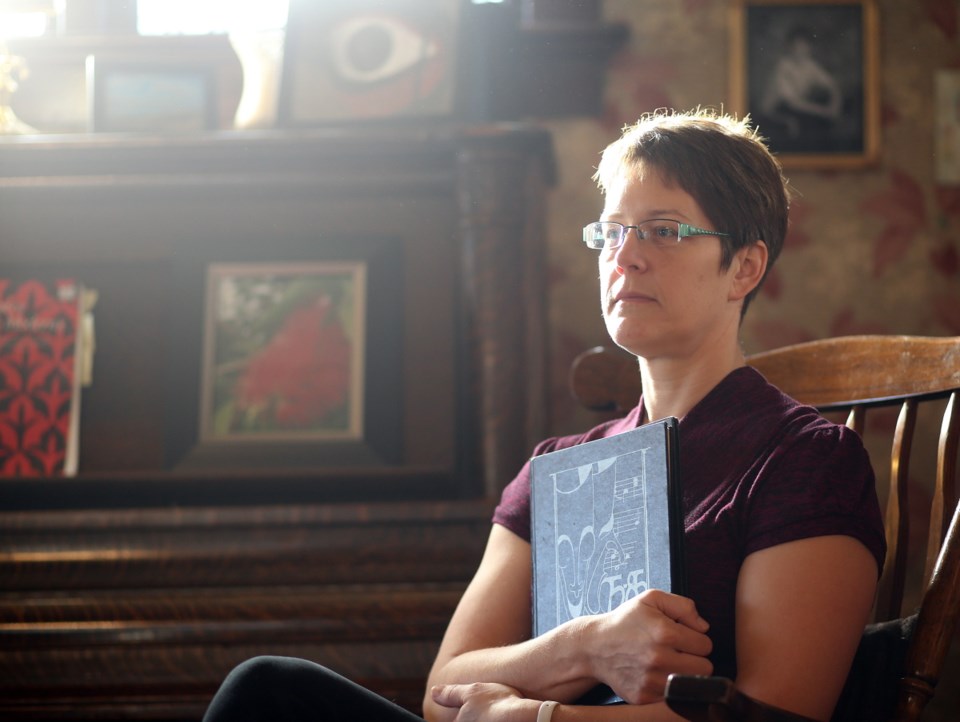Note to readers: This article was first published in 2014.
The first sign that something had happened on Dec. 6, 1989, were the whispers being passed through classrooms at Daegan Reimer’s university.
“There was this sort of murmur going around, ‘Hey, did you hear what happened?’ We all sort of stopped and listened,” she said.
Reimer’s classmates at Ontario’s Brock University, who knew she was from Montreal, asked if she knew anyone at École Polytechnique. Reimer would say yes, just one: Geneviève Bergeron.
Bergeron, 21, was one of 14 women fatally shot that day by Marc Lépine, who claimed to be fighting feminism.
The 25-year-old man began his 20-minute shooting rampage — with a gun he had purchased legally — by interrupting a student presentation in a second-floor classroom. He asked the men and women to move to separate sides of the room, before shouting, “You are all feminists!” at the women.
One student, Nathalie Provost, spoke up: “I said, ‘Listen, we are only women who are studying engineering. … We were only women in engineering who wanted to live a normal life,’ ” she told media two days after the shooting. The man opened fire, then moved to other areas of the school.
Lépine, who was specifically targeting women, shot 28 people — 24 women and four men — before turning his gun on himself.
The event, remembered today on its 25th anniversary, hit close to home for Reimer, who now lives in Victoria. She attended a small Montreal fine arts high school with Bergeron, described as a bubbly girl who took as many science electives as she could.
“She had a quiet side, but once you got her going, she was very outgoing and sort of always happy and smiling,” Reimer said.
Bergeron was a second-year engineering student on scholarship when she was killed.
“When I finally found out, I had to remove myself from people,” Reimer said. “I could hold it together until someone asked me if I was OK.”
Reimer said the significance of the attack followed her through future tragedies, including the school shootings at Concordia University and Dawson College in Montreal, as well as 9/11. Although she didn’t know anyone in the Twin Towers, Reimer said the familiar emotions moved her to work with an artist on a peace project. The pair made origami cranes and shared the anti-violence story of 1,000 Cranes with children in classrooms.
Reimer, who works for the Department of National Defence, said she hopes that if people have taken anything away from the tragedy, it’s the message that violence is never the answer.
“I try to work on that with my kids,” she said. “Using violence as a solution is not acceptable.”
The Montreal Massacre — the country’s worst mass shooting — galvanized the nation to institute stricter gun control and change police responses to reports of shootings. Dec. 6 is now known as the National Day of Remembrance and Action on Violence Against Women.
But Maureen Bradley, an associate professor of writing at the University of Victoria, said that there’s obvious room for improvement.
“Things are more equal, but they’re not equal,” she said. “There are still real barriers for women and [especially] women of colour. Misogyny hasn’t been eradicated and domestic abuse hasn’t decreased.”
Incidents of domestic violence across Canada rose to 213,264 in 2009 from 164,189 in 2004, the Ending Violence Association of B.C. estimates. In August, the body of Tina Fontaine, a 15-year-old aboriginal girl from Manitoba, was found wrapped in plastic in the Red River. A man went on a killing spree near the University of California, Santa Barbara, in May, allegedly seeking retribution against women for rejecting him sexually.
Bradley was a student at Montreal’s Concordia University when the shooting occurred, and she said she was shaken by the event. The incident moved her to participate in her first demonstration — she held a candle outside École Polytechnique on Dec. 7 — and dedicate her thesis to media coverage of the event.
“God, that one moment, I think it changed my path,” she said.
Despite the work still to be done, Bradley remains optimistic.
“I’ve been in university classrooms for 25 years, and I really feel there has been a shift in attitudes. I certainly notice it in my male students, but I’d say all students: That knee-jerk anti-feminist reaction I saw in classrooms after the Montreal Massacre, I don’t see that anymore,” she said.
“In one generation, the attitude of the majority of men has shifted in what I think is a positive direction.”



